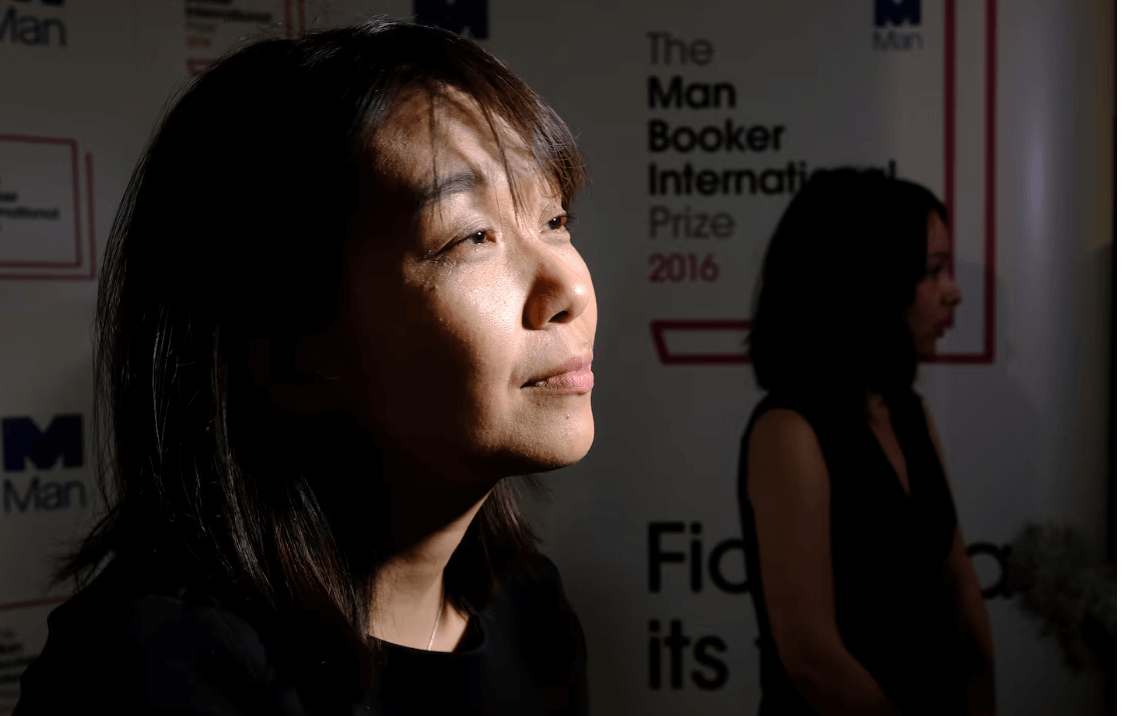韩江获诺贝尔文学奖

【中美创新时报2024 年 10 月 11 日编译讯】(记者温友平编译)以超现实主义、颠覆性小说《素食主义者》而闻名的韩国作家韩江(Han Kang)于周四获得诺贝尔文学奖——她是韩国第一位获得该奖项的作家。《纽约时报》记者亚历克斯·马歇尔(Alex Marshall)和亚历山德拉·奥尔特(Alexandra Alter)对此作了下述报道。
组织该奖项的瑞典文学院常任秘书马茨·马尔姆(Mats Malm)在斯德哥尔摩的新闻发布会上表示,韩江之所以获得这一荣誉,“是因为她用强烈的诗意散文直面历史创伤,揭露了人类生命的脆弱。”
《素食主义者》于 2007 年在韩国出版,在被翻译成英文后获得了 2016 年国际布克奖。故事围绕一位抑郁的家庭主妇展开,她停止吃肉后震惊了家人;后来,她完全停止进食,渴望变成一棵可以只靠阳光生存的树。卡克普尔福音派(Porochista Khakpour)在《纽约时报》上对《素食主义者》的评论中表示,韩江“理所当然地被誉为韩国的梦想家”。
韩江获诺贝尔奖令人意外。在宣布获奖结果之前,博彩公司最看好的今年获奖者是残雪,一位创作了打破传统小说的中国先锋派作家。但这一消息在社交媒体上受到了作家和粉丝的欢呼,在韩国也受到了热烈欢迎。
社长尹锡烈在一份声明中表示:“这是韩国文学的伟大成就,也是举国同庆的时刻。”他在声明中指出,韩能够捕捉到韩国近代历史中痛苦的片段。韩国流行乐队 BTS 的成员也表示庆祝,其中一名成员在韩江的照片旁发布了一个哭脸表情符号和一个爱心。
韩江的开创性作品重塑了韩国的文学格局,韩江小说《我们不分开》的联合译者佩吉·阿尼亚·莫里斯 (Paige Aniyah Morris) 表示,该小说将于明年 1 月在美国出版。
“韩江的作品激励了一代韩国作家,让他们更加真实、更加大胆地创作题材,”莫里斯说。“她一次又一次勇敢地面对审查和挽回面子的文化,每次她都以更强大、更坚定的作品摆脱了这些试图让她噤声的企图。”
53 岁的韩江于 1970 年出生于韩国光州。她的父亲也是一名小说家,但远没有那么成功。这个家庭经济拮据,经常搬家。在 2016 年接受《纽约时报》采访时,韩江说她短暂的成长经历“对一个小孩来说太过沉重,但我没事,因为我身边都是书。”
韩江九岁时,她的家人搬到了首尔,就在光州起义发生几个月前,当时政府军队向民主抗议者开火,造成数百人死亡。韩江在 2016 年的采访中说,这一事件塑造了她对人类暴力能力的看法,而这一事件的幽灵一直困扰着她的写作。在她 2014 年的小说《人性行为》中,一位作家观察了警察突袭一群活动人士的情景。
她还回忆起看到人们排队为起义中受伤的人献血的照片。
“这就像两个无法解决的谜语印在我的脑海里:人类怎么会如此暴力,人类怎么会如此崇高?”她说。“当我写小说时,我发现自己总是回到人性的意义这一主题上。”
小说家埃尔南·迪亚兹称赞韩江“对历史谣言有着独特的洞察力”,并补充说她可以“接触到塑造和伤害整整几代人的创伤,而且她从未将自己的小说变成单纯的说教工具。”
韩江在韩国延世大学学习文学,她发表的第一部作品是诗歌。她的处女作《黑鹿》于 1998 年出版,讲述了一位失踪女性的悬疑故事。在 2016 年的采访中,韩江说,大约在那个时候,她萌生了写一部关于一个变成植物的女人的短篇小说的想法,最终将其发展成《素食主义者》。
在处女作之后,韩江又写了七部小说,以及几部中篇小说和散文集和短篇小说集。她的其他小说包括《白书》(同样获得国际布克奖提名)和《希腊语课程》(2023 年以英文出版)。
在《希腊语课程》中,一名女性失去了说话能力,并试图通过学习古希腊语来恢复。伊德拉·诺维 (Idra Novey) 在《泰晤士报》的评论中称这部小说是“对语言共享中不可言喻的信任的颂扬”。
韩江的作品现在在韩国受到赞誉,但她说这需要一些时间,她的一些书最初受到了困惑。韩江说,《素食主义者》被认为“非常极端和怪异”。
在黛博拉·史密斯翻译《素食主义者》并仅凭前 10 页就将其卖给一家英国出版商后,她出版了二十多年的小说和诗歌,之后她的作品才被译成英文。
2016 年,英文版《素食主义者》广受好评,它推动了新一轮实验性小说翻译浪潮,其中包括具有女权主义倾向的女性创作的作品。
“她的作品,以及她作品的翻译和成功,使韩国文学翻译更加前卫、更具实验性和大胆,”居住在首尔的韩国翻译家兼作家安东·许尔 (Anton Hur) 表示。“她改变了韩国文学的话题。”
诺贝尔奖是文学界的最高奖项,获奖是作家、诗人或剧作家职业生涯的顶峰。以往的获奖者包括托妮·莫里森、哈罗德·品特,以及 2016 年的鲍勃·迪伦。除了声望和销量的大幅提升外,新获奖者还将获得约 100 万美元的奖金。
本文最初发表于《纽约时报》。
题图:2016 年的韩江以她的著作《素食主义者》而闻名。Alastair Grant/美联社
附原英文报道:
Han Kang is awarded Nobel Prize in literature
By Alex Marshall and Alexandra Alter New York Times,Updated October 10, 2024
Han Kang, shown in 2016, was most known for her book “The Vegetarian.”Alastair Grant/Associated Press
Han Kang, the South Korean author best known for her surreal, subversive novel, “The Vegetarian,” was awarded the Nobel Prize in literature Thursday — the first writer from her country to receive the award.
Mats Malm, the permanent secretary of the Swedish Academy, which organizes the prize, said at a news conference in Stockholm that Han was receiving the honor “for her intense poetic prose that confronts historical traumas and exposes the fragility of human life.”
“The Vegetarian,” published in Korea in 2007, won the 2016 International Booker Prize after it was translated into English. It centers on a depressed housewife who shocks her family when she stops eating meat; later, she stops eating altogether and yearns to turn into a tree that can live off sunlight alone. Porochista Khakpour, in a review of “The Vegetarian” for The New York Times, said that Han “has been rightfully celebrated as a visionary in South Korea.”
Han’s Nobel was a surprise. Before the announcement, the bookmakers’ favorite for this year’s award was Can Xue, an avant-garde Chinese writer of category-defying novels. But the news was celebrated by authors and fans on social media and greeted with fanfare in South Korea.
“This is a great achievement for South Korean literature and an occasion for national celebration,” President Yoon Suk Yeol said in a statement, in which he noted Han’s ability to capture painful episodes from their country’s recent history. Members of K-pop band BTS also celebrated, with one of them posting a crying-face emoji and a heart alongside a picture of Han Kang.
Han’s groundbreaking work has reshaped the literary landscape in South Korea, said Paige Aniyah Morris, co-translator of Han’s novel, “We Do Not Part,” which will be published in the United States in January.
“Han’s work has inspired a generation of Korean writers to be more truthful and more daring in their subject matter,” Morris said. “Time and time again, she has braved a culture of censorship and saving face, and she has come out of these attempts at silencing her with stronger, more unflinching work each time.”
Han, 53, was born in 1970 in Gwangju, South Korea. Her father was also a novelist, but much less successful. The family struggled financially and moved frequently. In a 2016 interview with the Times, Han said her transitory upbringing “was too much for a little child, but I was all right because I was surrounded by books.”
When Han was 9, her family moved to Seoul just months before the Gwangju uprising, when government troops fired on crowds of pro-democracy protesters, killing hundreds. The event shaped her views on humanity’s capacity for violence, Han said in the 2016 interview, and its specter has haunted her writing. In her 2014 novel “Human Acts,” a writer observes a police raid on a group of activists.
She also recalled seeing images of people who lined up to donate their blood to those who were injured in the uprising.
“It was like two unsolvable riddles imprinted on my mind: How can humans be so violent, and how can humans be so sublime?” she said. “When I write novels, I find myself always returning to the theme of what it means to be human.”
Novelist Hernan Diaz praised Han’s “unique ear for the rumors of history,” adding that she can “access the traumas that have shaped and bruised entire generations, and she does so without ever turning her novels into mere didactical tools.”
Han studied literature at Yonsei University in Korea, and her first published works were poems. Her debut novel, “Black Deer,” which came out in 1998, was a mystery about a missing woman. In the 2016 interview, Han said it was around that time that she developed the idea for a short story about a woman who becomes a plant, which she eventually developed into “The Vegetarian.”
Following her debut, Han went on to write seven more novels, as well as several novellas and collections of essays and short stories. Among her other novels are “The White Book,” which was also nominated for the International Booker Prize, and “Greek Lessons,” published in English in 2023.
In “Greek Lessons,” a woman loses her ability to speak and tries to restore it by learning ancient Greek. Idra Novey, in a review for the Times, called the novel “a celebration of the ineffable trust to be found in sharing language.”
Han’s work is now celebrated in South Korea, but that took some time, she said, and some of her books were initially greeted with bafflement. “The Vegetarian” was received as “very extreme and bizarre,” Han said.
She had been publishing fiction and poetry for more than two decades before her work was issued in English, after Deborah Smith translated “The Vegetarian” and sold it to a British publisher based on the first 10 pages.
When the English language edition was released to acclaim in 2016, “The Vegetarian” helped to drive a new wave of translations of more experimental fiction, including works by women with a feminist bent.
“Her work, and the translation and success of her work, has led Korean literature in translation to be edgier and more experimental and daring,” Anton Hur, a South Korean translator and author who is based in Seoul. “She changed the conversation about Korean literature.”
The Nobel Prize is literature’s preeminent award, and being awarded it is a capstone to a writer, poet, or playwright’s career. Past recipients have included Toni Morrison, Harold Pinter and, in 2016, Bob Dylan. Along with the prestige and a huge boost in sales, the new laureate receives about $1 million.
This article originally appeared in The New York Times.

